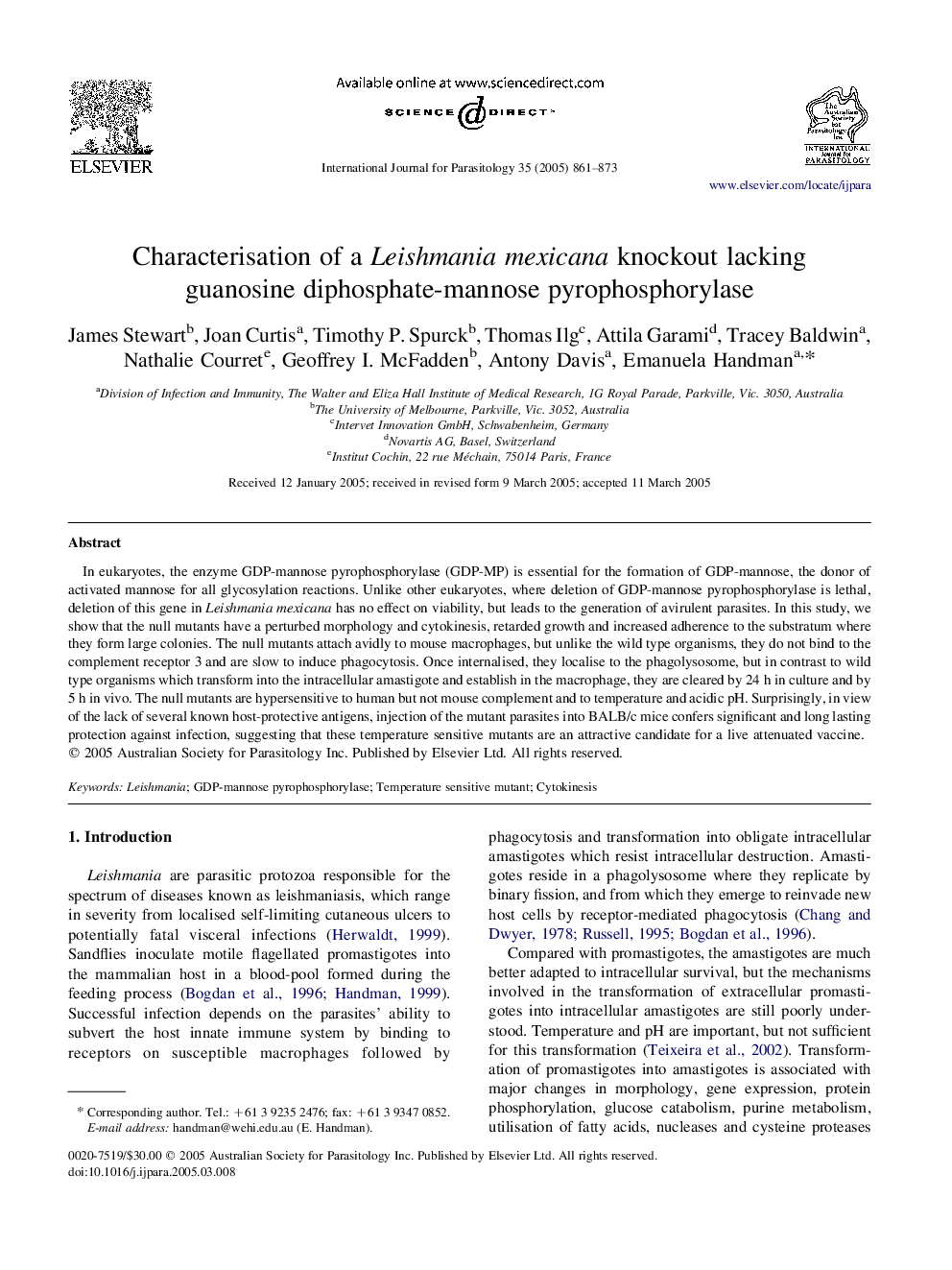| Article ID | Journal | Published Year | Pages | File Type |
|---|---|---|---|---|
| 8980053 | International Journal for Parasitology | 2005 | 13 Pages |
Abstract
In eukaryotes, the enzyme GDP-mannose pyrophosphorylase (GDP-MP) is essential for the formation of GDP-mannose, the donor of activated mannose for all glycosylation reactions. Unlike other eukaryotes, where deletion of GDP-mannose pyrophosphorylase is lethal, deletion of this gene in Leishmania mexicana has no effect on viability, but leads to the generation of avirulent parasites. In this study, we show that the null mutants have a perturbed morphology and cytokinesis, retarded growth and increased adherence to the substratum where they form large colonies. The null mutants attach avidly to mouse macrophages, but unlike the wild type organisms, they do not bind to the complement receptor 3 and are slow to induce phagocytosis. Once internalised, they localise to the phagolysosome, but in contrast to wild type organisms which transform into the intracellular amastigote and establish in the macrophage, they are cleared by 24Â h in culture and by 5Â h in vivo. The null mutants are hypersensitive to human but not mouse complement and to temperature and acidic pH. Surprisingly, in view of the lack of several known host-protective antigens, injection of the mutant parasites into BALB/c mice confers significant and long lasting protection against infection, suggesting that these temperature sensitive mutants are an attractive candidate for a live attenuated vaccine.
Related Topics
Life Sciences
Immunology and Microbiology
Parasitology
Authors
James Stewart, Joan Curtis, Timothy P. Spurck, Thomas Ilg, Attila Garami, Tracey Baldwin, Nathalie Courret, Geoffrey I. McFadden, Antony Davis, Emanuela Handman,
